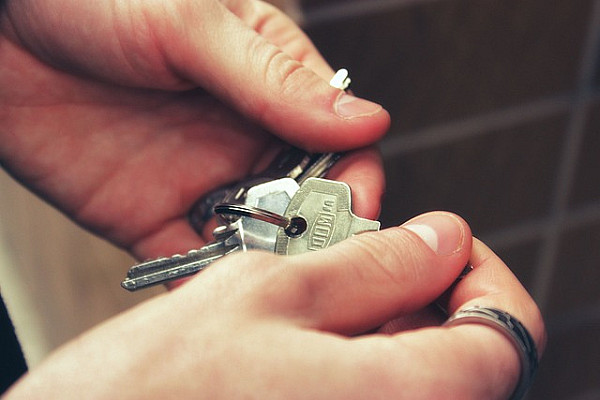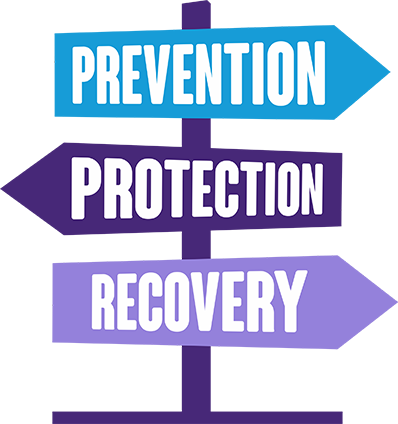Sourcing Refuge

What is a Refuge?
A refuge is a temporary safe and secure accommodation for individuals and families fleeing domestic abuse. Refuges are available throughout the UK and provide a range of services. Some refuges are staffed 24 hours a day, while others offer daytime assistance with on-call support available during other times.
Certain refuges provide tailored support to meet the religious and cultural needs of individuals from specific ethnic or cultural backgrounds. Refuges may also offer disabled access and accommodations for those with special needs.
To ensure the safety of residents, the location and address of the refuge are kept confidential, and visitors are generally not permitted, except for specific professionals.
Who is it for?
Eligibility criteria for refuge are:
- Age 16 or over when accessing the service as an adult
- Recourse to public funds
- Fleeing or at risk of domestic abuse
- Willingness to engage with the service
- Exhaustion of other options such as target hardening or sanctuary schemes, with refuge as a last resort.
Several factors should be taken into consideration, such as the victim's dependence on a support network and the complexity of their needs. Weighing the risks versus the benefits is critical since relocating hundreds of miles away could be detrimental, particularly if the victim or their children heavily rely on family and friends. Additionally, if court-ordered child contact must be maintained, it's important to choose a refuge that is within reasonable travelling distance. By considering these factors, you can help ensure that the victim and their family find a suitable refuge that meets their needs and circumstances.
How do I help someone source refuge accommodation?
As a professional, there are several ways to help someone source refuge accommodation.
If they reside in Lincolnshire, call the LDASS helpline on 01522 510041 and then one of the following options:
- Option 1: If the person is not already being supported by LDASS. You will be diverted to EDAN Lincs Refuge who are the Single Point of Access (SPA) for Refuge in Lincolnshire. Then access the referral forms below once you have had that conversation.
- Option 2: If you know that the person is currently being supported by LDASS and has an allocated domestic abuse worker. Your call will be diverted to the LDASS support hub.
After hours: If necessary, contact the National Domestic Abuse Helpline which is a 24 hour service offering confidential support and advice on 0808 2000 247. They can provide information on available refuge spaces and refer individuals to appropriate services.
Making a referral to EDAN Lincs Refuge
EDAN Lincs offers a variety of refuge accommodations in Lincolnshire, including multi-occupancy and self-contained units, as well as specialised units and dispersed safe houses in the community.
Before making a referral to our refuge, please ensure that you have obtained the victim's consent.
We recommend contacting EDAN Lincs refuge beforehand to check availability and discuss the suitability of a referral before completing the referral form.
Contact:
EDAN Lincs Refuge on 01522 510041 (Option 1)
Mon – Fri – 8.30am – 7pm
Sat – 10am – 5pm
Click to download the referral forms:
Professional Refuge referral form or the Self Refuge referral form
Then email the completed referral form to lincsrefugespa@edanlincs.org.uk
Once the referral is received, a comprehensive assessment is conducted with the victim to evaluate the safety and appropriateness of refuge accommodation on an individual basis. Typically, a decision is made within 24 hours of receiving the referral and communicated to both the victim and referrer.
EDAN Lincs Refuge has access to information on available refuge spaces in the UK and can offer details for refuges, as well as support with referrals if needed.
Please note that EDAN Lincs, along with other refuges, does not accept referrals from individuals who reside in close proximity to the refuge accommodation. This precaution is taken to ensure the safety of both the victim and the refuge residents, as abusers may be able to locate them easily. Furthermore, individuals with local connections are also unlikely to be accepted as this can heighten the risk of the abuser finding them.
Other accommodation options for those experiencing domestic abuse
There are several accommodation options available for individuals experiencing domestic abuse. These options include:
Emergency accommodation through the local council, such as hostels, hotels, or bed and breakfasts. As a professional, you can make a referral on behalf of the victim with or without children. Please refer to the Lincolnshire Duty to Refer Protocol for further information.
If there is a risk of violence, individuals fleeing domestic abuse are entitled to apply for housing to any local authority of their choosing. A local connection is not necessary in cases of domestic violence.
Temporary stays with friends or family members who can offer a safe environment. However, it's important to consider that staying with friends or family may make the victim more accessible to the abuser.
Private renting is also an option. Individuals can contact their local council's housing department for more information on general housing options and financial assistance.
If they wish to stay in their own home, they may consider obtaining an injunction to protect themselves and their children from the abuser. Information on injunctions is available at https://reducingtherisk.org.uk/injunctions
Also, click here for more information a victim’s rights and options.
Safety planning
Safety planning is crucial to ensure the safety of individuals and their children who are leaving an abusive relationship, as they are most at risk during this time.
For important safety advice for those considering leaving an abusive relationship, click here.
How will they get to refuge?
When it comes to travelling to the refuge, refuge staff will work with the victim to explore travel options and provide guidance and support in arranging travel. An option available is the Rail to Refuge scheme, a joint initiative between rail companies and Women's Aid, where train operators cover the cost of train tickets for women, men, and children escaping domestic abuse travelling to refuge accommodation.
For more information on this scheme, visit https://www.womensaid.org.uk/what-we-do/supporting-our-members/rail-to-refuge/
What they should take to the refuge?
If possible and safe to do so, the victim should try to take:
- Identification - birth certificates, passport, driving licence
- Any school and medical records, contact telephone numbers of the school, GP or health visitor.
- Money, bank cards, cheque book and credit cards
- Keys – house, car, office
- Prescribed medication and vitamin supplements
- Benefit letters
- Visas and work permits
- Mortgage details or lease and rental agreements
- Current unpaid bills
- Insurance documents
- Address book
- Personal items – photographs, small items of sentimental value, the children’s favourite items or small toys. Clothes and toiletries.
If it’s not safe for the victim to gather these items they should not do so. The most important thing is getting them to a place of safety.

